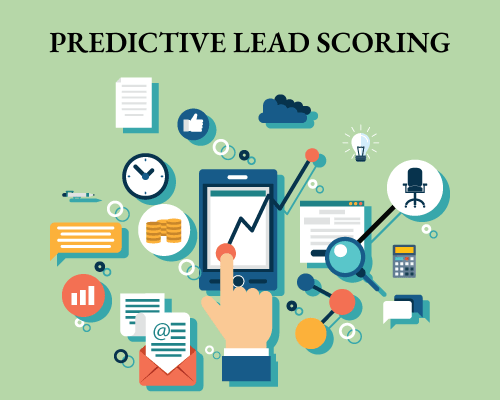What is Lead Scoring?
Sales and marketing departments have actively started counting on lead scoring because it helps them save money and time by enabling them to focus their time on potential and most important customers. But, what is lead scoring?
Lead scoring is a powerful methodology that helps sales and marketing teams to identify their most potential prospects and worthy leads, and their current sales funnel. Basically, lead scoring is how organizations rank their leads on the basis of several behavioral and demographic factors to help you determine the most potential leads.
This model helps you ensure that your lead flow is streamlined, you have efficient lead management, and you boost your sales effectively. Though, not a fresh concept, the popularity that lead scoring has gained in the past few years is impressive.

How did Lead Scoring evolve?
The age of manual lead scoring:
Initially, lead scoring was done manually. It included running thorough research on potential customers, registering their information on a spreadsheet, and scoring them, all before the recent enhancements in the software and technology industry. A study conducted in 2012 revealed that the companies scoring their leads witnessed a 77% increase in lead generation ROI as compared to the companies who did not score their leads. This got the trend rolling out, prompting companies to adopt the methodology.
The adoption of CRM-assisted scoring:
Since the idea of scoring leads started gaining momentum, CRM (customer relationship management) systems took up the task of making the process automated and much more simplified. With the help of CRM, companies started collecting data about every single lead and scoring them by the software on the basis of the selected criteria. As this model still required sales and marketing teams to invest a lot of time into researching leads prior to scoring them, this was accepted as an improvement on scoring leads manually. Nonetheless, the amount of time taken by employees was still pretty high.
The dawn of marketing automation:
When companies couldn’t find a solid plan to reduce the time invested by their employees in the research-based task, marketing automation emerged as the savior. Marketing automation made it easy to track the online behavior of leads and gather implicit information. A wider variety of data could now be analyzed and processed in a more automated manner as marketing automation started linking to CRM.
With marketing automation doing its part and tracking actions of customers, it was still not smart enough to differentiate between those visitors who were actually interested in the company’s products/services and those who were simply visiting the site without any intention of making a purchase.
A 2016 survey revealed that 61% of the survey participants said that one of the greatest challenges faced in lead scoring was “misleading buying signals”. It was then time to explore the next level: Predictive Lead Scoring.
Predictive Lead Scoring
Fast forwarding to today’s time, predictive lead scoring, powered by Machine Learning and Artificial Intelligence, has been introduced to fulfill the purpose of determining which criteria identifies as a strong lead, building lead scoring models particularly based on your company’s needs, and being enough adaptable in times of changing markets. The predictive lead scoring system automatically does all the research and calculations. This keeps sales and marketing teams away from reviewing scoring formula constantly and saves up their time for other tasks.

With the introduction of Einstein AI, Salesforce gave a new approach to predictive lead scoring. Salesforce has a huge contacts and sales database. Sales Cloud Einstein, a product of Salesforce, analyzes fields that are attached to the Lead object. Then, it attempts using distinct predictive models such as Naive Bayes, Random Forests, and Logistic Regression. When it finds the apt model, it selects the best leads with its predictions. It also updates the information automatically whenever there are any changes in a lead’s information.
Furthermore, a tool customized for the sales teams, Einstein Opportunity Insights automatically recommends the best meeting times and follow-ups with the help of Machine Learning, statistical analysis, and natural language processing. Apart from that, Einstein Account Insight analyzes numerous articles and determines key changes in the market and companies.
Einstein predictive lead scoring streamlines majority of the tasks and enables your team to focus their energy on the best leads that, eventually, minimize response time and improves customer engagement.
Are you looking for the best Salesforce consulting company? Contact us today!
Source: Salesforce, AI Multiple, Dazeworks












